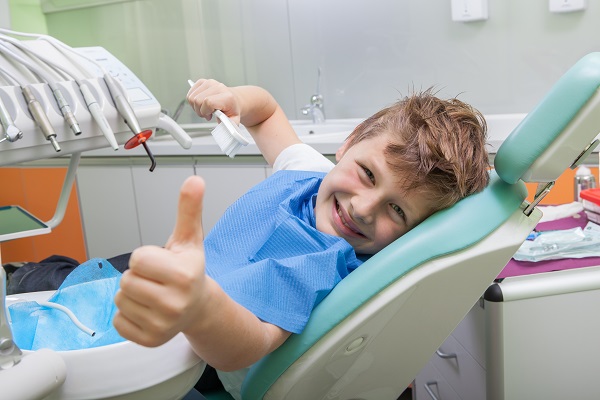The teeth, bones and soft tissue of the mouth require a healthy, well-balanced diet. A variety of foods from the five food groups helps minimize (and avoid) cavities and other dental problems. Many snacks marketed towards children are loaded with the simple sugars that cause cavities. Children who snack on proteins, dairy, whole grains, vegetables, and whole fruits usually have fewer cavities compared to children who snack on crackers, cookies, and cereals that are high in simple carbohydrates. Often, it is the frequency of sugar exposure that increases cavity risk. The children who snack regularly between meals will get more cavities than children who stick to eating at meal times. Additionally, the drinks that children prefer can have a strong impact on their dental health. Children are more likely to remain cavity free if they prefer plain milk and water to the more sugary drinks like juices, sodas, sports drinks, sweet teas, or flavored milks. Providing your child with a “no-spill cup” or “sippy cup” with non-diluted juice in-between meals has the double risk factors of high simple sugar exposure and high frequency of exposure to sugars due to how children sip from this type of cup. Try to limit juices to meal times and dilute the juice significantly with tap water.






